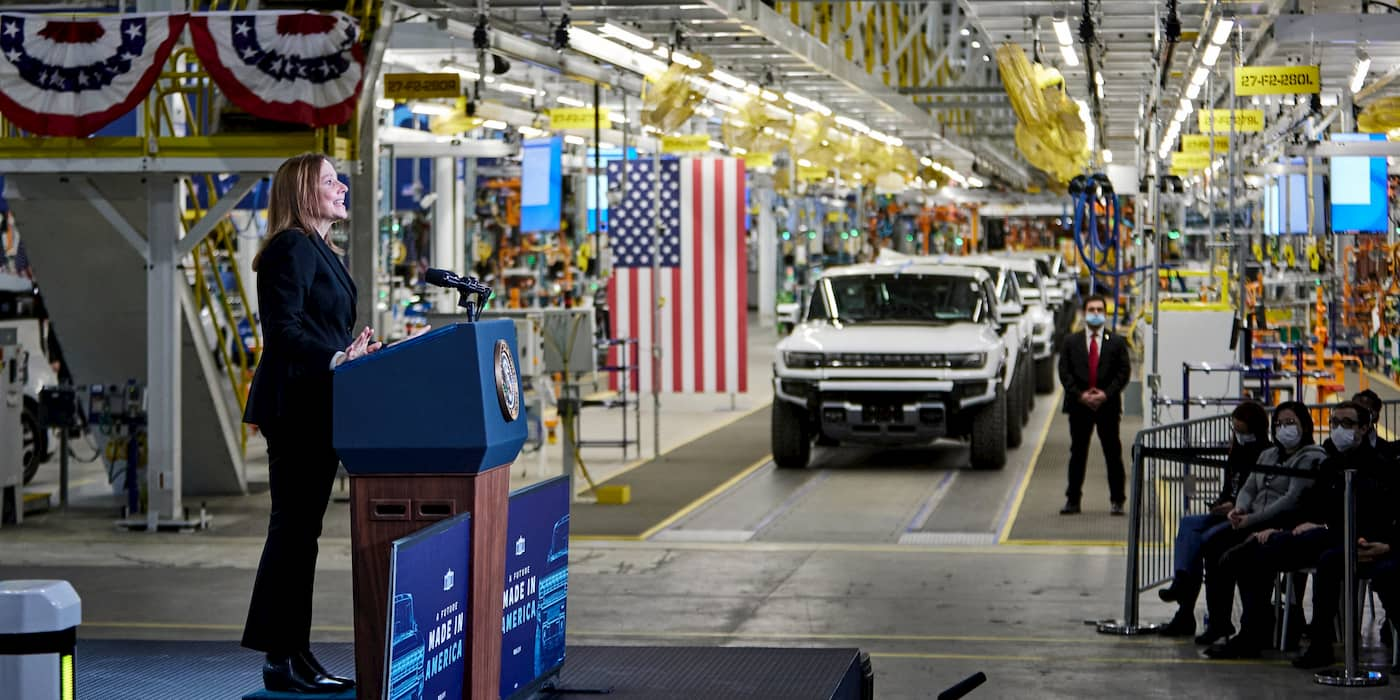
General Motors (GM) looks to get back on track this year as executives believe EV “production hell” is behind it. After missing EV sales targets for the past two years, will 2024 be the year of execution, as GM says it will?
Is GM putting production hell behind it?
After delivering 75,883 EVs last year, GM (again) missed its target of selling 100,000 alone in the second half of 2023.
The automaker encountered freight delays, software glitches, and other issues that delayed timelines. After almost three months, GM lifted the Blazer EV stop-sale earlier this month. GM issued the stop-sale in December, four months after opening orders.
GM confirmed it was pausing sales to fix a software glitch. Chevy said the measure was non-safety-related and impacted a limited number of Blazer EV owners.
To make matters worse, GM ended production of its best-selling Chevy Bolt EV at the end of 2023, which accounted for 62,045 or over 81% of EV sales last year.
GM aims to build 200,000 to 300,000 Ultium-based EVs, or about 20 times more than it did in 2023. The goal is still well short of its previous target of making 400,000 EVs through mid-2024.
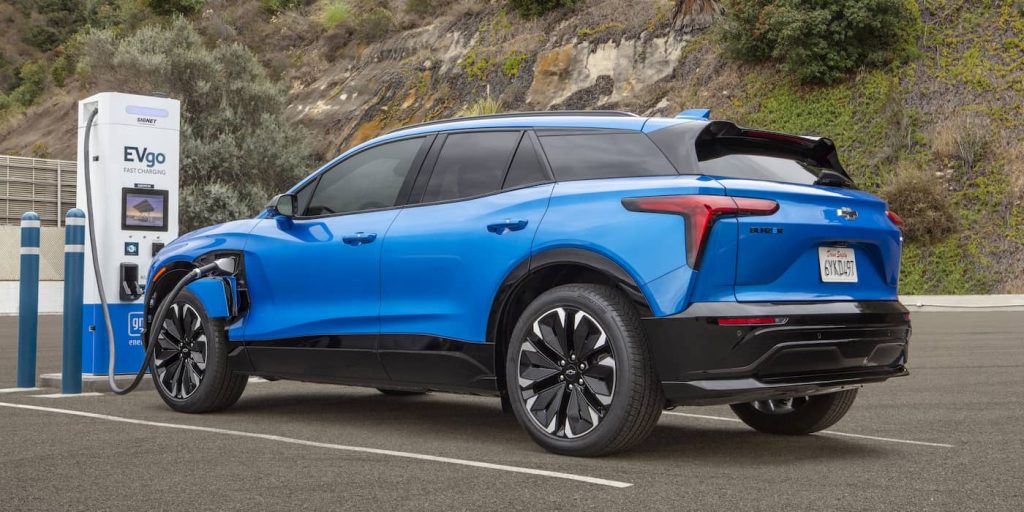
CEO Mary Barra said 2024 is the “year of execution” as GM looks to get back on track. “Getting vehicles out there right and getting the software” straight is at the top of the to-do list.
Regarding ramping up Ultium battery production, CFO Paul Jacobson said at a recent speech, “We’ve had some challenges scaling it,” but he added, “I think most of those are behind us.”
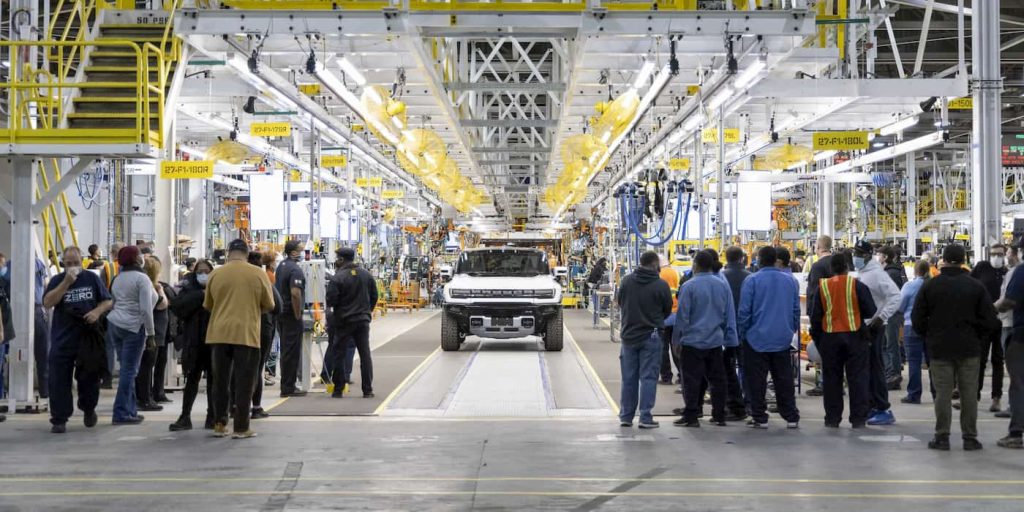
GM sold fewer than 14,000 Ultium-based EVs in 2023, including the Cadillac Lyriq (9,154) and GMC Hummer (3,244). The Blazer EV and Silverado EV WT began rolling out in late 2023, with 482 and 461 models sold in 2023, respectively.
Rivian sold more R1S models alone than GM did Ultium EVs last year. With 24,783 R1S models handed over, Rivian’s electric SUV was the seventh best-selling EV in the US. Chevy’s Bolt EV was third.
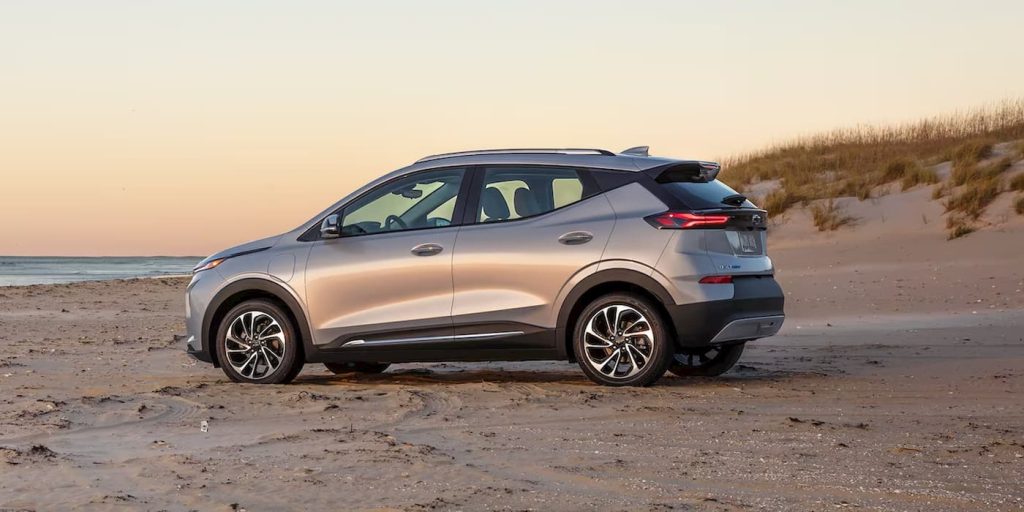
Overcoming hurdles at Factory Zero
GM says it has doubled battery production at its Factory Zero plant since Q4, according to a new Bloomberg report, but more still needs to be done.
The report says GM rushed its own best practices with Ultium production to get batteries out. GM skipped the typical assembly-line setup to test production before getting started.
Instead, the company installed fully automated battery assembly lines at the plant right away rather than testing elsewhere, according to Mike Anderson, vice president of global electrification and battery systems.
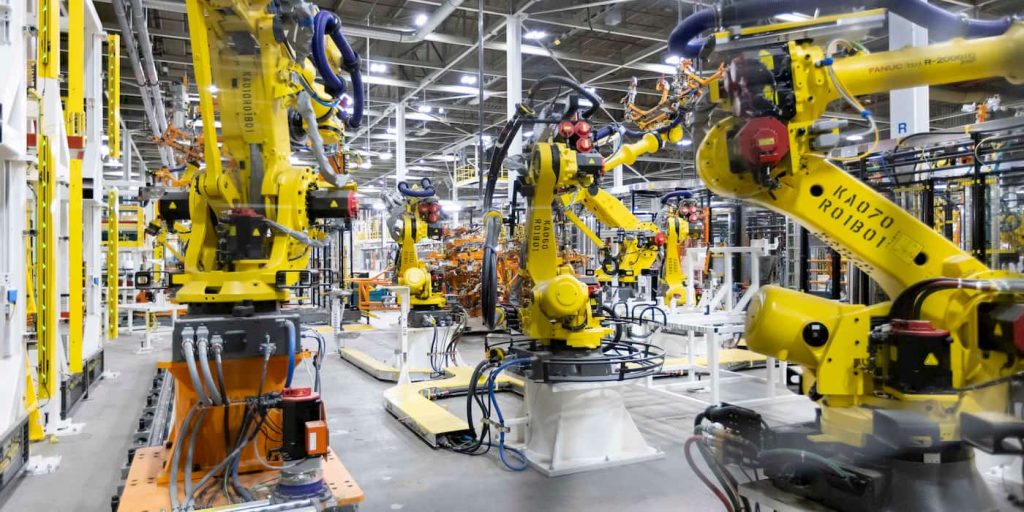
Battery cells must be pressed and packed precisely, so with a robot stacking six battery cell pouches at a time, mistakes can happen.
If the cells don’t line up exactly, the unit will bend, and the cell won’t link with the others. The Detroit Fire Department has been called nine times to Factory Zero since August.
GM aims to overcome the issues after hiring battery experts, consultants, and others, including former Tesla battery expert Kurt Kelty, to fix assembly.
Anderson said he thinks the company has “turned the corner” at its battery factory as it aims to hit GM’s production target this year.
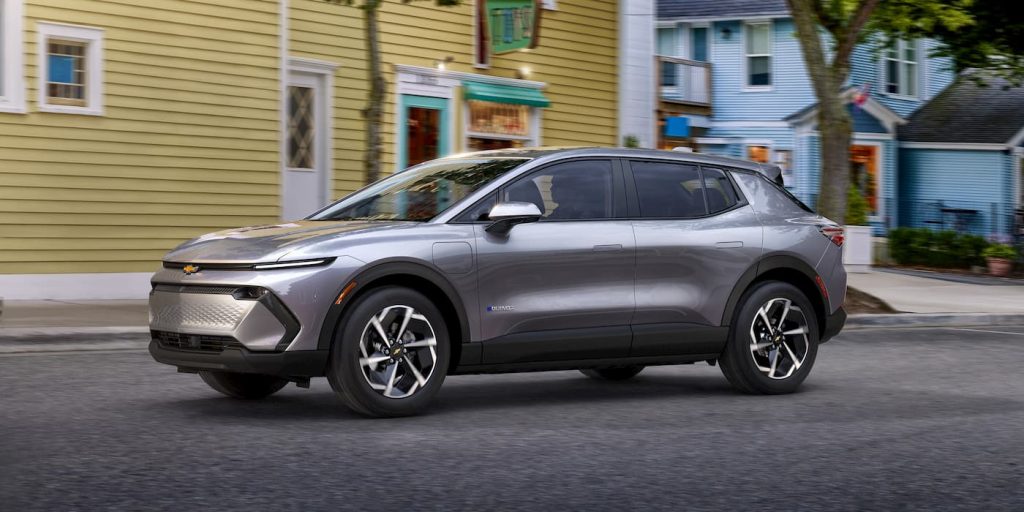
GM isn’t the only automaker with software issues delaying EV targets. Porsche finally released its all-electric Macan EV earlier this year after a nearly two-year delay. Ford also issued a stop-ship order on the F-150 Lightning in February.
GM will introduce the new Ultium-based Chevy Bolt next year, which will save the company “billions” with LFP batteries.
What do you guys think? GM has broken several promises in the past. Will 2024 be any different? Let us know what you think in the comments.
FTC: We use income earning auto affiliate links. More.






